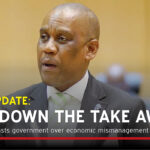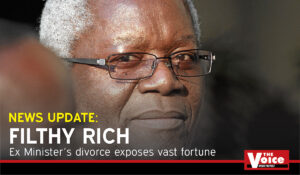History likes repeating itself in Zimbabwe.
And I guess that’s the reason President Emmerson Mnangangwa is reportedly sleeping with one eye open.
For a leader that came into power through a military coup, he probably fears past events might come into play again.
He was supposed to have been in New York this week for the United Nations summit but he did not go, and according to local media reports he cancelled the trip at the eleventh hour due to safety fears and high tensions within the ruling ZanuPF.
The President has been attending the UN summit since he came into power in 2017 but this time around he just couldn’t go as there are fears of a revolt because of his plans to extend his power beyond the two terms.
Though he has said he maintained that he will step down in 2028, events on the ground point to the contrary and this is what is allegedly causing tension between his camp and that of vice president, Constantino Chiwenga who has ambitions to become the country’s next leader.
And for someone who is already paranoid, the recent helicopter crash could not have come at a better time.
Though he was not on board the helicopter that was carrying other VIPs, apparently there are concerns that the crash which happened last weekend after celebrations of his birthday was not just an ordinary accident.
On the economic front, major retailers in the country say they might be forced to close shop if the government does not act fast to restore stability in the financial sector.
Retailers are expected to sell their goods using the official rate of US$1:ZiG$13.80 yet on the parallel market it is trading at US$1:ZiG$30, a scenario which is not sustainable as most companies usually buy their foreign currency in the streets.
The local currency is fast losing its value and if the ongoing trend in the financial market is anything to go by, then it is going the same way as other past currencies.
Zimbabwe has had six currencies since the country gained independence in 1980, all being introduced to tame hyperinflation and bring stability.
And though the government claims that inflation is officially 3.7 percent, some economists say it is well over 700 percent especially when calculated against the use of the local currency.



















